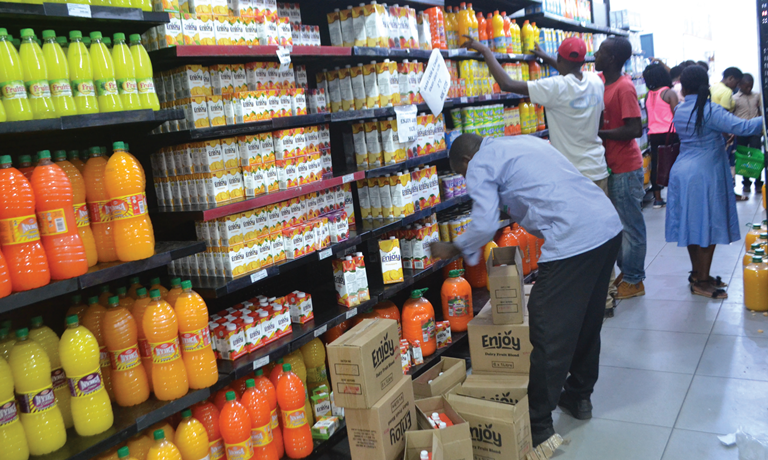Why cost of living keeps on rising
It never rains but pours for ordinary Malawians who continue to be pushed into the poverty web as the cost of living, the cost of maintaining a certain standard of living, continues to push them into perpetual hardships.
As prices of goods increased following increases of basic items such as transport, food and housing, consumers keep on struggling to make ends meet.

During the year, global oil prices continued to rise. In the third quarter of the year, the oil prices rose to an average of $73 (K60 000) per barrel from $68.6 (K56 000) per barrel in the previous quarter.
The rising global oil prices pushed the Malawi Energy Regulatory Authority (Mera)to raise fuel pump prices in October by an average of 22.8 percent.
Effectively, petrol went up by 27.89 percent to K1 150 from K899.20, diesel went up by 24.72 percent from K898 to K1 220 while paraffin rose by 15.79 percent to K833.20 from K719.60.
On the other hand, the retail price of maize, which as part of the food component, contributes 42.5 percent to the inflation basket, has been on the rise.
The Ministry of Agriculture recently announced an upward revision of maize selling price in all Agricultural Development and Marketing Corporation outlets from K160 to K205 per kg.
As if that was not enough, the country’s five water boards also raised water tariffs by an average of 52 percent in November.

While Malawians were nursing this hike, Malawi Housing Corporation also announced an increase in their monthly rentals for its houses. Consumers are now paying K45 000 for a one bed-roomed house up from K28 000.
Spot checks done by the Business News show that prices of other basic necessities are going up north, with sugar fetching as high as K1 000 in some rural areas from around K750 during the same period last year.
In the worst case scenario, some consumers have to part with K1 200 to buy a one kilogramme (kg) packet of sugar.
A one kg packet of salt was last year selling at K260, but is now at around K450, a pack of flour, referred to as ‘walkman’, whose quantity is less a kg, mostly used by low income earners, was selling at K400 last year and is now fetching K650 and a two-litre bottle of cooking oil is now at K5 000 from about K3500 during the first half this year.
These and many others are basic items that are at the core of survival of many low-income earners and rural people.
For one Esmie Gombwa, life moved from bad to worse in view of the rising cost of living.
Gombwa, a mother of eight, said in an interview that it had become hard to purchase even a small plastic bag of charcoal whose price doubled in a speace of less than six months.

She says: “Things have not been any better for me as I have shifted from one business to another, trying to make ends meet. I now sell fried dry fish [kanyenya] which fetch me about K4 000 in a day.
“But with the rise in transport costs, everything has also been hiked, following which I now have little left for my survival. I am forced to find piece work, including weekends just to earn additional money to support my family.”
With an average income of about K60 000 per month realised from her vegetable business, Martha Chabwera, a Chiwembe Township resident, said in an interview that she had to cut on using electricity for cooking and other uses to survive.
“The same K4 000 which could take me close to a month might now take me two weeks or less. I have to go a day without using electrical appliances just to save on power,” she said.
Consumers Association of Malawi executive director John Kapito admitted in an interview that consumers felt the pinch of price hikes.
He says: “The current situation is hard economically and socially. We do not know where this leads to but one can predict that the current economic situation has negatively impacted heavily on all sectors of life.
“We would have loved to see the current budget building mechanisms on how to cushion the key sectors provide a lot of stimulus support to the middle class and small businesses that only rely on an active market ignoring these facts that we have Covid-19 which has slowed the world economy.”
Kapito says it was unbelievable to understand how Malawians were coping with these hard economic market pressures saying this is also happening at a time when the country was struggling with the Covid-19 which forced most businesses to be closed and most consumers retrenched.
In an interview, Malawi University of Business and Applied Sciences associate professor of economics Betchani Tchereni observed that any price increase erodes households welfare.
He said that while consumption expenditure is good for the economy as it is an important factor in fueling the wheels of economic growth, when it is reduced due to higher prices it becomes concerning.
“When the prices are too high, some manufacturers may not raise the price level, but compromise on the quality of the products they sale on the market. This in itself is dangerous for the economy,” he says.
In November, published World Food Programme (WFP) figures showed that the minimum amount required to maintain existence and cover lifesaving needs of households has increased by an average of six percent in October from the previous month amid rising prices.
WFP figures show that in urban areas, the survival minimum expenditure basket increased by five percent from K63 355 to K66 529 per month, translating to an additional K3 174 per month for a household to meet its basic survival needs between September and October 2021.
On the other hand, the Centre for Social Concern Basic Needs Basket showed that a family of six in July 2021 needed K207 000 a month to survive. up from K160 000 in July 2020. Minister of Trade Sosten Gwengwe earlier admitted that the Malawians are going through tough times, but said there was little that Malawi could do to hedge against rising prices in the global economy.





